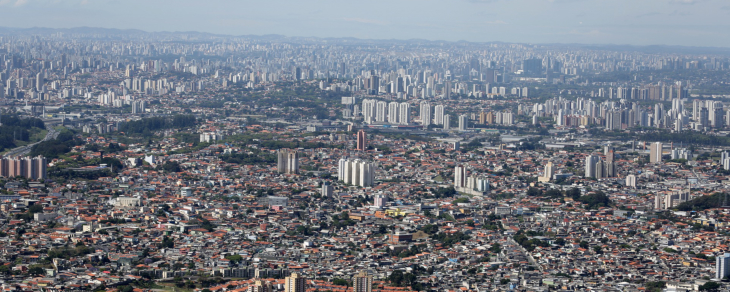iSPECS
Institutional and socio-cultural preconditions for the effective co-development of localized actionable climate services – a comparison of Hamburg and São Paulo

Foto: pixabay/joelfotos
Project duration: February 2020 – September 2021
Results
- Project launch: iSPECS starts research on science-policy interactions in urban climate governance
- Research design for the comparative multi-level governance analysis of the cases Hamburg and São Paulo defined
- Qualitative interviews with relevant actors in Hamburg and São Paulo completed
- iSPECS at the ITD 21 (13.-17. September 2021)
- Final iSPECS Workshop on project results
- Paper published
Background
In order to develop useful and usable climate services for adaptation in urban areas, stakeholders need to be involved in the co-design of service provision. However, this requires the understanding of institutional and sociocultural preconditions that can facilitate interactions between all the sectors and mechanisms. In this context, the structure and governance of a climate service, particularly in urban areas, are important determinants of the effectiveness of the service itself.
iSPECS aims to contribute to the overall challenge of better understanding an effective co-development of climate services with a focus on the institutional role and sociocultural preconditions by comparing the cities of Hamburg (Germany) and São Paulo (Brazil). A detailed analysis of the appropriate roles of the different (public and private) sectors in meeting societal varying needs for climate services in Hamburg and São Paulo will be instrumental in improving the provision of effective climate services in both cases.
Therefore, the main scientific questions of this project are:
- What is the institutional environment in which climate related decision-making takes place at the city level in Hamburg and São Paulo?
- Who are relevant stakeholders, and what are their potential roles (public and private sector) in climate service provision?
- How do these stakeholders make sense of climate change information and derived adaptation measures?
- What are the sociocultural forms of expertise and the use of knowledge for policymaking?
- In how far do stakeholder relations, forms of communication, and the use of power differ along sociocultural dimensions between Hamburg and São Paulo?
- How is service provision in other sectors of public policy institutionally and socio-culturally embedded, and what can one learn from these other sectors for climate services?
- What is the relative effectiveness of various institutional arrangements established to support climate service development and provision in Hamburg and São Paulo?
Project staff
Principal Investigators
Prof. Dr. Anita Engels, Universität Hamburg
Dr. Jörg Cortekar, Climate Service Center Germany (GERICS)
Postdoc
Dr. Laura Schmidt, Climate Service Center Germany (GERICS)
Dr. Marcela da S. Feital (external)

